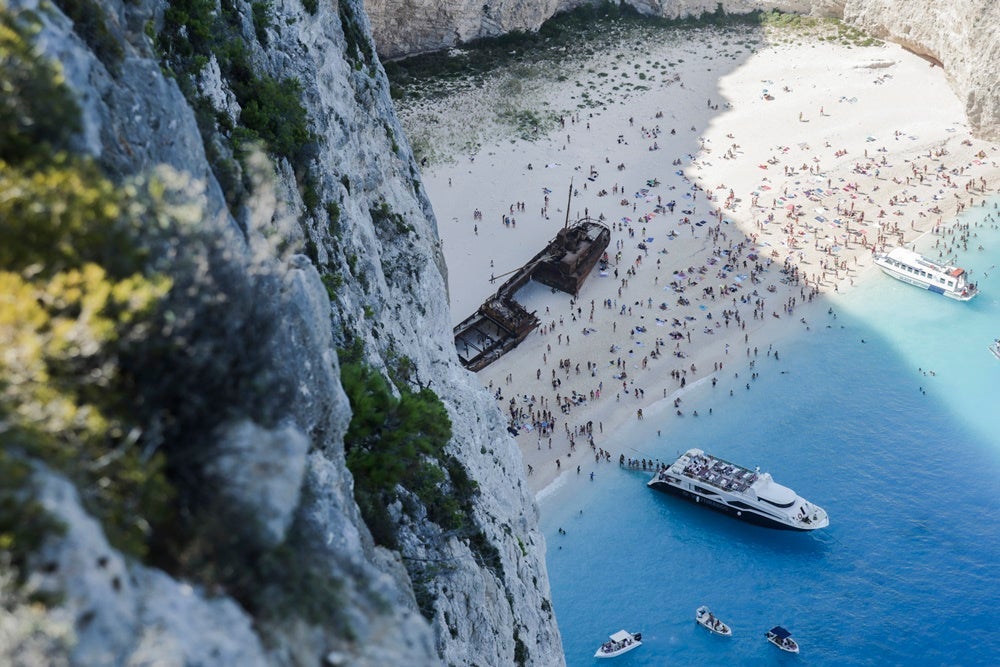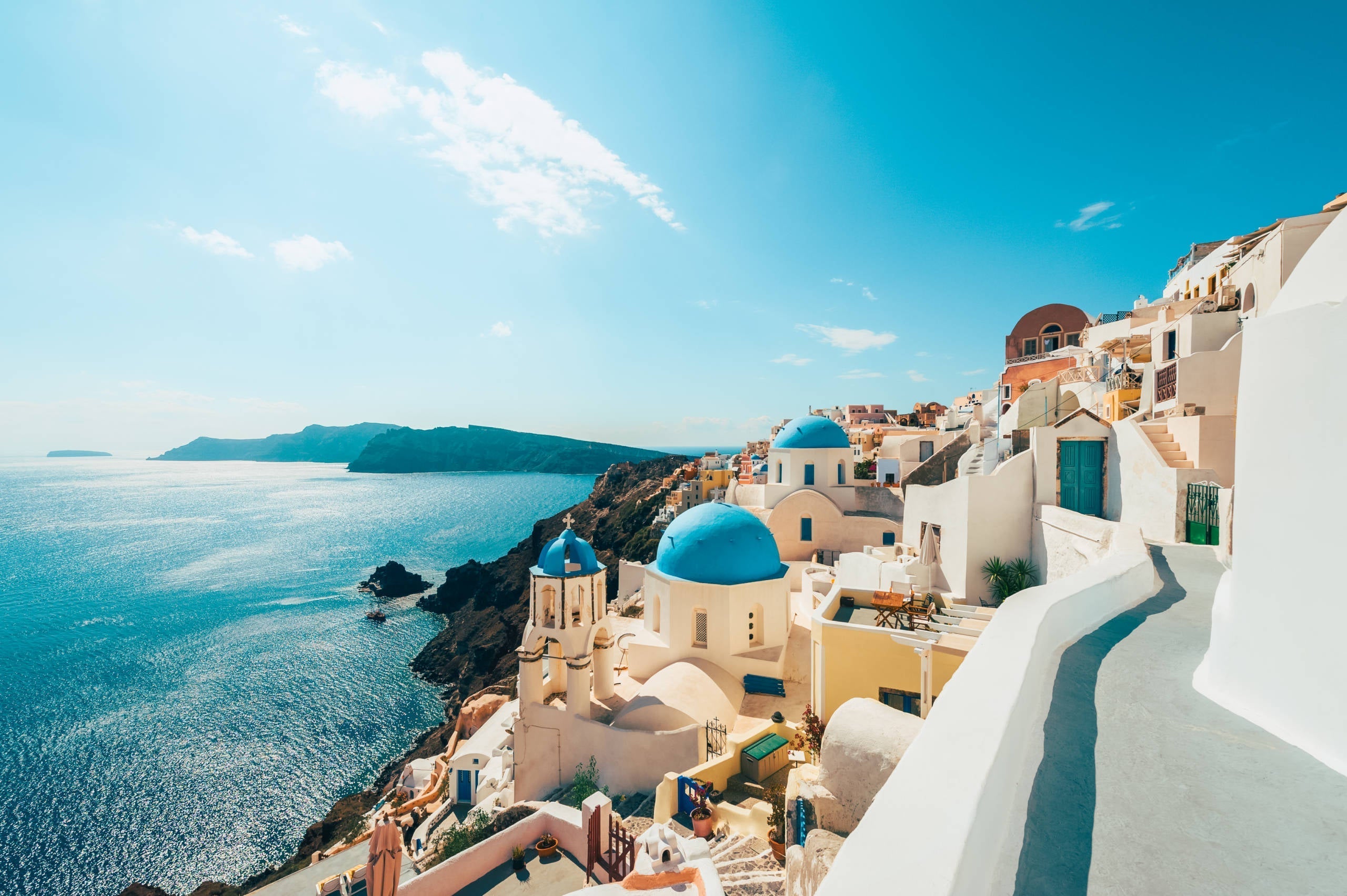7 things no one tells you about the Greek islands
This guide has been updated with new information.
Travel to Greece is about to get a lot easier. Health officials announced, effective May 2, Greece will be suspending its COVID-19 travel restrictions.
While not necessarily a permanent change, Greek officials do expect the country will be keeping its entry requirements off the books through the summer tourism months. They're expecting heavy demand, too. As travelers plan trips to Europe at a rate unseen during the pandemic so far, Greece is expecting crowds close to the record-setting ones seen in 2019.
If you're booked on a trip to Greece (or you are considering an excursion there now) there are some important things to keep in mind as you plan your travel. Among them, preparing to navigate the country's beautiful islands.
The Greek islands are complete with sunshine-filled beaches, charming white buildings and epic sunsets. Here, now, are seven things you may not know about this fascinating part of Greece that can help you have an incredible trip.
1. There are so many more islands than you think
If asked to name some of the Greek Islands, you'd probably be able to come up with a few off the top of your head, but in reality, there are closer to 6,000 of them. Only a couple of hundred or so are actually inhabited, but even that gives travelers many less-crowded options if you're willing to go beyond the typical Santorini or Mykonos trip.

2. Take your pick of natural and man-made wonders
The magic of these islands goes beyond the breathtaking sunsets. Santorini is one of the few places in the world where you can see white, black and red-sand beaches, thanks to all the volcanic activity — the island of Crete is also home to more than 300 caves. Romantics should visit Kardia, a naturally heart-shaped island, and Amorgos is home to a giant shipwreck, as is the island of Zakynthos. Visit Giola, a turquoise pool of water formed by rocks on the island of Thassos, and hot springs on the island of Samothraki are said to have healing powers, too.
Read more: 9 things I wish I knew before visiting Greece

3. Don't rush — you're on island time
You should know this going in: Greece runs on "Mediterranean time." Things here move slowly, and people don't take time as seriously as they do in the U.S. or most of western Europe, especially in the islands. Don't expect any type of public transportation — like buses or ferries — to arrive or depart on time, give yourself plenty of time at the airport and expect crowds everywhere.

Taxi and airport strikes are common and can put a damper on your plans, so try to just take it easy and go with the flow. There's no point in rushing because no one else is. Head to a less-visited island if you want something a little calmer. Most importantly, add in a little extra time when planning and booking connecting flights, ferries and other transportation to avoid any extra headaches.

4. There's an island where the people live forever (well, almost)
Ikaria is one Greek island where the people basically live forever — well, maybe not forever, but longer than anywhere else. It's considered to be one of the few "blue zones" in the world, special areas where the residents tend to live longer and often reach the three-digit mark. Locals attribute their long lifespans to daily rituals involving coffee, exercise, drinking local wine and using the island's natural herbs in teas and to cure ailments — bathing in the nearby hot springs is also said to help.
Read more: 8 Greek Islands you've probably never heard of

5. Don't wave at anyone
It's probably best not to wave at anyone in the Greek islands because you could (accidentally) be flipping them off. The exact motion you should avoid: extending all of your fingers and directing your palm at someone in a forward motion. It's called the mountza and is believed to be derived from an ancient curse, so don't do it!
6. Be prepared to deal with large crowds
Greece normally receives double its population in tourists each year and is one of the few destinations where they actually outnumber the locals. While this isn't limited to just the islands, in many cases the local population on one of them could be just a few hundred, but that number swells well into the thousands during the high season. Keep this in mind while traveling and try to respect the (few) locals who may reside on your chosen island.

Read more: How to spend 48 hours in Athens
7. Dance all night long — and maybe all day
If you want to have a local experience, don't forget to pack your dancing shoes. There are more than 10,000 types of traditional Greek dances and many of them come from the islands — each isle, and often each village, has its own. The people here don't necessarily need a reason to bust a move — dancing at weddings, during holidays, to celebrate the grape harvest or just because they feel like it.
Make sure only to dance when you've been invited to, though, as some of the dances may have strict traditions and arrangements, like a set order by age or status — you wouldn't want to be the random tourist who screws up the whole routine now, would you?
Bottom line
While the Greek islands have some gorgeous beaches and tavernas galore, each also has its own personality and systems and is definitely a different experience to the Greek mainland. So read the above tips to manage your expectations with regard to crowds and punctuality to have the best time possible in this fantastic part of the world.
TPG featured card
at Capital One's secure site
Terms & restrictions apply. See rates & fees.
| 5X miles | Earn 5X miles on hotels, vacation rentals and rental cars booked through Capital One Travel |
| 2X miles | Earn unlimited 2X miles on every purchase, every day |
Pros
- Stellar welcome offer of 75,000 miles after spending $4,000 on purchases in the first three months from account opening. Plus, a $250 Capital One Travel credit to use in your first cardholder year upon account opening.
- You'll earn 2 miles per dollar on every purchase, which means you won't have to worry about memorizing bonus categories
- Rewards are versatile and can be redeemed for a statement credit or transferred to Capital One’s transfer partners
Cons
- Highest bonus-earning categories only on travel booked via Capital One Travel
- LIMITED-TIME OFFER: Enjoy $250 to use on Capital One Travel in your first cardholder year, plus earn 75,000 bonus miles once you spend $4,000 on purchases within the first 3 months from account opening - that’s equal to $1,000 in travel
- Earn unlimited 2X miles on every purchase, every day
- Earn 5X miles on hotels, vacation rentals and rental cars booked through Capital One Travel
- Miles won't expire for the life of the account and there's no limit to how many you can earn
- Receive up to a $120 credit for Global Entry or TSA PreCheck®
- Use your miles to get reimbursed for any travel purchase—or redeem by booking a trip through Capital One Travel
- Enjoy a $50 experience credit and other premium benefits with every hotel and vacation rental booked from the Lifestyle Collection
- Transfer your miles to your choice of 15+ travel loyalty programs
- Top rated mobile app


